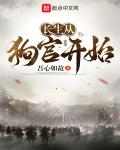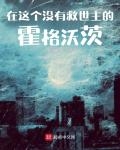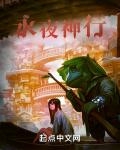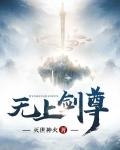Chapter 225: A brand new simulation experience, the new saint of Mohism!
As time passed, it seemed as if the speed of time was accelerated. This feeling was somewhat strange. Su Che had experienced it before, and more than once.
This situation occurred in the previous few interventions, every time in the middle and late stages of the simulation.
In the blink of an eye, years or even decades have passed.
However, everything that happened during this period is still vivid in my mind, as if it happened just yesterday.
At first Su Che didn't notice it.
It just feels like time flies so fast. In the blink of an eye, I have spent three years in Jixia Academy.
He was a ten-year-old child at the time, but he gradually grew into a teenager.
But gradually, he felt something was wrong.
Time really seems to be going faster.
This is not an illusion.
But it is what actually happened.
This surprised Su Che a little.
Logically speaking, time should not be accelerated in the early stages of the simulation. This is something that only occurs in the middle and late stages.
Everything has just begun, why is it speeding up?
Isn't this just making things more difficult for yourself?
This situation is really strange.
But it also verified Su Che's idea from the side...
Something might have happened outside!!
It even affected the world of heroes.
So much so that even my own simulation began to speed up.
"Could it be that..."
“The world of heroes is about to disappear?”
Su Che thought for a while and thought of this possibility.
But according to the heroes, it should take at least two or three years for the world of heroes to disappear. Why would it disappear suddenly?
Could it be that those demons were behind this?
Did they accelerate the integration of the two worlds and start the war ahead of time?
But what is the purpose of doing this?
It is unimaginable to push for the accelerated integration of the two worlds, and it is impossible to do it without paying a huge price!
If this is true, then it seems like there is something chasing these demons, forcing them to make this choice out of necessity!
What on earth could be such a threat to the entire demon world?
Su Che couldn't help but fall into deep thought.
After thinking for a long time, I still had no clue.
This matter was so strange that he couldn't figure it out!
Of course, all this is just Su Che's guess and inference.
We will have to wait until we get out to find out what happened in the real world.
This simulation is quite important and Su Che is unwilling to give up easily.
His sixth sense told him.
If this succeeds, we will gain a lot.
…
As time speeds up.
Time passed faster and faster, and in the blink of an eye, another two or three years had passed .
The simulation experience becomes quite amazing.
Sometimes, Su Che was still doing something, and the next second, Su Che could even see lines of text passing by in front of his eyes, as if he was reading a novel.
This is a whole new simulation experience.
…
The Mohist ideas were not accepted by the king.
Because Mohist thought had gone beyond the actual social development at that time and did not meet the needs of the rulers.
It was impossible to maintain peace for a long time during the Warring States Period when many warlords were fighting for power.
Therefore, Mozi's policy of universal love and non-aggression seemed a bit unrealistic at the time. Even though it was supported by ordinary people and popular among the people, it was not accepted by the princes and ultimately could not achieve success.
During Su Che's period, the Mohist school simply split into two branches:
A group of people who focused on the study of epistemology, logic, geometry, geometric optics, statics and other disciplines are called "Mohist followers."
The other group was transformed into social rangers.
Su Che's senior brother Han Feizi once said: "Confucians use literature to disrupt the law, and knights use force to break the law"!
Once Confucianism became integrated with politics and became the basis for legislation, it was fully legalized.
Since Mohism, which prides itself on being chivalrous, has been prepared to stand with the weak, it will inevitably end up on the opposite side of power and become a thorn in the side of the powerful and authoritarian regime.
Therefore, the future of Mohism is bound to be continuous weakening and withering, until it will eventually be completely unable to survive.
"Han Feizi·Xianxue" states: "The most famous schools of thought in the world are Confucianism and Mohism."
However, from Han Feizi to the period of Emperor Wu of Han, only a hundred years passed, and Mohism fell from being a world-renowned academic discipline into the abyss. As a result, in the long period of time that followed, Mozi's name was rarely mentioned by scholars.
Since then, the Mohist School has fallen into a long period of slumber! No one has ever mentioned it again!
Su Che knew this, so he decided to try to change it all!
Without changing the fundamental ideas of Mohism, the Mohist propositions were made more in line with the times and the interests of various monarchs.
What he did was sneered at by some Mohist students, but was also highly admired by many Mohist students, who hoped that he would become a great figure in Mohist school!
During this period of time.
Su Che published three articles in succession.
They are:
On Ink
Ink World
New Ink
In "On Mo".
Su Che analyzed with reason and evidence the nature of Mohism and how it was incompatible with this era. He also talked about the harmfulness of Mohist knights, which would not only cause certain harm to society, but would also lead to the complete downfall of Mohism.
Therefore, the Mohist school must make certain changes in order to survive.
What does Mohism advocate?
【Universal Love】: Love each other and benefit each other.
Regardless of relationship, status, wealth or poverty, love everyone equally, help each other and seek mutual welfare.
【Non-aggression】: Oppose war.
However, in order to survive, the Mohists actively participated in the war, because they were the ones with the strongest ability in inventing and manufacturing siege equipment.
This is a paradoxical point.
This is probably like Gatling's hope to invent a gun that, relying on fierce firepower, can replace many rifles, allowing one soldier to have the combat effectiveness of many soldiers, thereby reducing the number of soldiers on the battlefield and achieving the goal of reducing casualties in war.
Obviously, Gatling's original intention was good, but he did not succeed. However, nuclear bombs later achieved this goal, making the world relatively peaceful and reducing large-scale wars.
The reason why nuclear bombs can reduce wars is not essentially because of how powerful the nuclear bombs are, how many civilians and soldiers they will kill, or how much nuclear radiation they will affect the natural environment and leave behind.
Since ancient times, no matter how the living environment of civilians and soldiers at the bottom changes, it has nothing to do with the rulers above.
A chess player will not cry over the loss of a chess piece.
The effect of a nuclear bomb is to pull the rulers themselves, the chess players, completely off the table, put them together with the soldiers and civilians at the bottom, and threaten their own safety.
In this way, a deterrent effect was achieved, which reduced the war relatively.
If Mohism can continue to develop, it may be able to truly achieve "non-aggression".
【尚贤】: Respect people with talent and virtue.
A country with many virtuous people will inevitably become prosperous.
Rather than completely occupying the country's ruling class because of blood inheritance.
【Shangtong】: Unify thoughts.
Shangtong is an administrative management principle that goes hand in hand with Shangxian.
Mozi believed that inconsistent government policies would only lead to social chaos.
Just like respecting the virtuous, respecting unity is the foundation of governance.
Mozi's idea of Shangtong is highly centralized, implementing top-down control and effective management.
Human behavior is controlled by thoughts and consciousness. Without unity of thought, there can be no unity of action. Mozi advocated "unifying the righteousness of the world" to unify the thoughts of people all over the world.
Mozi believed that the pursuit of unity was the foundation of administrative management. As long as those in power "love the people and use them, trust them and keep them, use wealth and honor to guide them, and punish them clearly to lead them", and take appropriate measures, they will be able to unify the thoughts of the whole country and realize the goal of enriching the people and governing the country.
[Heaven's Will]: Heaven has will and emotions, reigns over the world, rewards the good and punishes the evil, and is the supreme ruler of nature and human society.
The sun, moon, stars, mountains, rivers, valleys, spring, summer, autumn, winter, snow, sleet, rain, dew, grains, silk, hemp, kings and nobles - all are created and arranged by heaven.
This was the hope to create a common god to bind and protect all.
Because Mohism does not emphasize blood ties but freedom, it requires the creation of a god to govern everyone.
Compared with the Confucianism that respects ancestors and has a blood relationship system, the Mohist system is obviously much weaker and too idealistic.
【明鬼】:Distinguish ghosts and gods, promote good and punish evil.
Ghosts and gods can see all human actions.
That is what is meant by: “Heaven knows, earth knows, you know, and I know.”
This idea is interrelated with Tianzhi.
【非命】:If people do not obey fate, they can change their destiny through their own efforts.
Confucius said, "Life and death are determined by fate, wealth and honor are determined by heaven."
It means that everyone has a destiny, which is arranged by God.
People at the bottom of society please don’t blame the society, because it is your fate.
The concept of destiny laid the foundation for the Confucian idea that there are different levels of courtesy and love.
However, the Mohists believed that human destiny can be changed through acquired efforts!
Later, Chen Sheng said: "Are kings, princes, generals and ministers of different species?"
To some extent, this is the Mohist view.
However, compared with the Mohist idea of "non-fatalism", the saying "Are kings, princes, generals and ministers born with a special kind of blood?" is too famous and has overshadowed the former.
This view is actually proposed in response to the Confucian idea of "heaven's will" and the concept of differences between the noble and the humble. Mozi advocates the survival attitude that man can conquer nature and everything is in the hands of man, and encourages people to work hard to change the unequal situation in the world.
【Anti-music 】: Oppose music.
The main objection here was to the rulers, the nobles and the dignitaries who "collected heavy taxes from the people to make the sounds of big bells, beating drums, zithers, harps, flutes and shengs", "depriving the people of their money for food and clothing", while they themselves indulged in music and enjoyed themselves.
【Economic funeral】: Economical funeral.
Funeral culture was popular as early as the Western Zhou Dynasty, and Confucianism solidified funeral culture and advocated lavish burials.
Mozi said: "To bury the dead with great care and to mourn for a long time, to make heavy coffins and coffins, to make many clothes and quilts, to move the dead away, to weep for three years, to be helped up after standing up, to be helped after walking with a stick, to hear nothing, to see nothing, this is enough to ruin the world."
Mozi was born into a peasant family and was well aware of the hardships of life in the countryside. He also knew that the so-called red tape was for the living to see, not for the dead, so he advocated simple burials.
Mozi advocated that one should serve the elderly earnestly during one's lifetime, and that even a lavish burial after death would be of no avail.
This is not the true embodiment of "filial piety"!
But it is 'unfilial'!
【Economy】: Make the best use of things and be frugal.
Only by saving and avoiding waste can we make materials more abundant, which is interrelated with frugal burials.
Many of these ten propositions and ideas are incompatible with this era and therefore cannot be promoted and implemented.
Sima Qian wrote a family history for Confucius, and wrote biographies for merchants, swordsmen, and clowns, but he did not write a biography for Mozi.
The Mohist school of later generations completely disappeared, and there was no possibility of cultural revival.
This is such a pity.
In his article "On Mohism", Su Che used sharp words to directly point out the many flaws in Mohist ideas, which were not in line with the actual situation.
Some things, even if they have good intentions, are useless if they cannot be implemented and do not meet the actual conditions.
There are many imperfections and contradictions in the Mohist doctrines.
For example, the Mohists advocated unified thought and also advocated a free commercial market.
The Mohists advocated frugal burials and the disclosure of ghosts.
This is like Confucianism emphasizing the importance of sacrifice but not believing in ghosts and gods.
Mozi looked at things from the perspective of handicraft merchants, but he didn't know that these people would also become "evil dragons" once they grew up.
As soon as Su Che's "On Mo" was released, it caused an uproar.
This article sparked widespread discussion among various schools of Mohism.
For a while, there were constant voices of discussion.
Some people rebuked Su Che for his brazenness, his lies, and his nonsense. Could he be compared with Mozi? Could it be that Mozi had not considered what he had considered?
But some people also think that Su Che's views are interesting, somewhat out of date, too idealistic, and difficult to promote thoroughly.
Amidst all the discussions, Su Che immediately published the article "Mo Tianxia".
Su Che envisioned a society dominated by Mohists and described various things that might happen in this society.
The angle of this article is very novel.
It can be considered an article with a hint of "deduction".
Some of Su Che's deductions are not nonsense, but tell many things that will actually happen.
Once this article was published, it once again caused a great sensation.
There are more voices of discussion.
Even some old monsters were blown away by this article.
Undoubtedly, this article "Mo Tianxia" has once again aroused widespread discussion, and people can't help but start thinking, if this is true, will these things really happen?
For a long time, the Mohist school’s propositions and ideas have been a bit too simple, and they prefer to study various scientific researches.
If these two articles by Su Che were placed in the field of Confucianism, they might not be too surprising. Although there would be discussions, the discussions and responses would definitely not be so great.
But if it happens to the Mohist School, it will be different. It is like dropping a blockbuster bomb in a calm lake!
When the discussion reached a fever pitch, Su Che finally revealed his true colors and published a new article.
"New Ink"!
He created ten new propositions based on Mozi's ten propositions. Su Che made these ten propositions more in line with this era, allowing Mohism to have its own political ideas, which were more in line with the rights and interests of rulers and more in line with the operation of this era.
When "New Ink" came out, the world was shocked!
The entire Mohist school was in an uproar!
Even Taoism, Confucianism, Legalism, Nominalism, Military Science, Agriculture, and Yin-Yang schools were alarmed.
At that time, some people called Su Che——
The new saint of Mohism!






